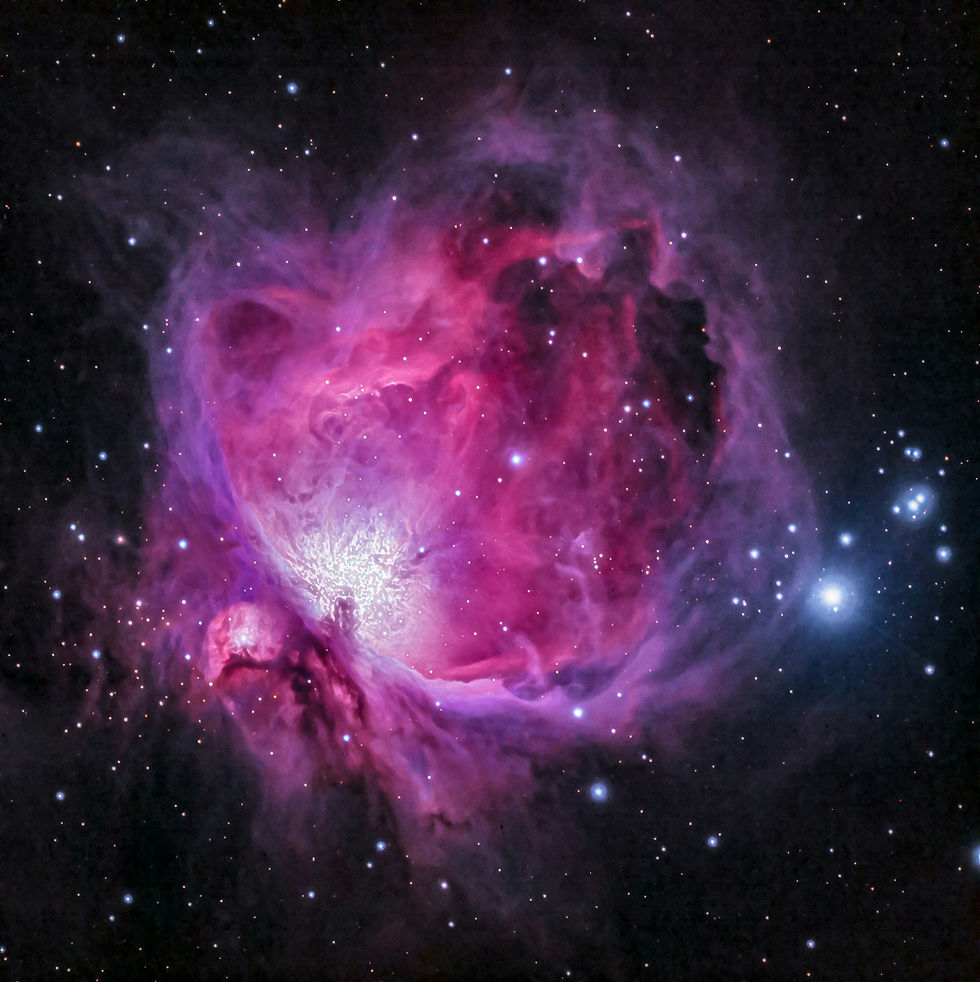By Kian Williams

(Photo by Aldebaran S on Unsplash)
There are an estimated 500 billion planets in the Milky Way, and thanks to the Kepler mission of 2009, we know that anywhere from 300 million up to 40 billion of those planets are similar to Earth and have the right ingredients to create and house life. Our galaxy is teeming with the possibility for intelligent life to be born and subsequently flourish and expand. Yet, other than us, there is no intelligent life, or life itself, to be found.
The Milky Way was formed a mind-stretching 13.6 billion years ago, but despite being host to all these planets that are ripe for life all this while, the Milky Way is yet to produce an ounce of serious, intelligent life. Why? Earth only joined the Milky Way's impressive collection of planets a mere 4.5 billion years ago. That means that other planets in the Milky Way, similar to our Earth, have had more than double the time to create life for said life to develop and reach the stars.
We humans were only brought into existence a cosmically insignificant 200,000 years ago. Yet in that short time, we have evolved and achieved so much. So why is it that we do not see this happening in any one of the array of planets in the Milky Way that have had so much time to do what we have done and more? Why is it that in an environment filled to the brim with the potential for species to be created and expanded, we see nothing? Is it not logical that if it took only 4.5 billion years for humans to come about and get into space, then somewhere else, something has done just that and more?
That is the question physicist Enrico Fermi asked in the 1950s, and he simply said, "Where is everybody?" The universe was vast and old, he reasoned, so why haven’t other species emerged and evolved into an intergalactic civilization? The asking of this plain question has spawned years of physicists and philosophers trying to explain what has been dubbed the Fermi paradox. Two theories that have garnered quite a bit of attention are the Great Filter Theory and the Dark Forest theory.
The Great Filter Theory
The Great Filter Theory states that something is stopping life on any planet from passing a certain stage and evolving into the intergalactic species it could be. When we look at the numbers for the amount of potential life-hosting planets and the time they have had to create life, it makes no sense why an intergalactic species hasn’t emerged yet. It took us humans a cosmically insignificant 200,000 years to make it into space, and our planet Earth had less than half the time most of these other planets had to create sentient life and allow it to evolve.
So, if it’s so probable, why hasn’t it happened yet? Perhaps there is something stopping life from exceeding a certain point in its evolutionary journey – a barrier that either keeps a species grounded to its planet or brings about its demise entirely. This is what the Great Filter theory suggests. On the way to becoming a multi-planet species or simply an intelligent and civilized species, there are certain hurdles to cross that are “great” and make the probable scenario of an intergalactic species existing an extremely unlikely one. What these “filters” or hurdles are isn’t something that we can tell for certain. It may be something as simple as life becoming intelligent. There are an estimated 7 million animal species on Earth, yet only one, us, became intelligent enough to build cities and launch rockets.
Maybe the greatest challenge of all is for life to become intelligent and sustain itself. Some also say that maybe it is a natural occurrence, like an asteroid, volcanic eruption, or any other inevitable and naturally caused event that would ruin and devastate life on a given planet. Life on Earth was almost completely destroyed by an asteroid with around 75% of all life being annihilated – we just got lucky that mammals survived and were subsequently able to thrive. Maybe it isn’t about the species' evolution or natural occurrences outside of their control; maybe the thing that ultimately dooms and filters out life on a planet is life itself. Maybe it is inevitable that when a species reaches a level of technological prowess and advancement, greed, and corruption cause that civilization to end itself through war with weapons of mass destruction no one can hide from. Here on Earth, we all remember the Cuban missile crisis. We were so close to having an all-out nuclear war that may have left no survivors, yet in the final second, we were able to magically resolve the crisis and everyone went back home. There is a great deal of "maybes" regarding the nature of the filter, making this theory very vague; however, it is a viable one.
We humans have been through a lot of challenges to make it to where we are today. It wasn’t easy, and there were a lot of places where everything could’ve gone wrong. With literally a click of a button, we wouldn’t be here today. So it does make sense that life on other planets just gets gradually filtered out by the planet it's on or itself since where we have made it is no easy feat. That's the other interesting part of this, though; we have overcome a lot of challenges as humans, but have we passed through the great filter, or are we about to face it? War is everywhere at the moment, with Putin threatening nukes every hour; the planet is slowly dying with climate change eroding our way of life, racial and religious tensions are reaching a breaking point with BLM protests and the burning of the Quran in Sweden. Has humanity passed its ultimate test yet, or are we too going to be filtered out in the upcoming years? And if we are filtered out, will it be our own doing, and will it be avoidable?
The Dark Forest Theory
The Dark Forest Theory states that even if there are species in this galaxy and universe that can travel among the stars, they would choose not to make contact with us or even travel beyond their planet in the first place, out of fear. We humans are very eager to explore the universe and all its unknowns. We are constantly sending messages in the hopes of a response, constantly sending out probes to the most dangerous and hostile parts of the galaxy, and putting up telescopes and satellites in the hopes of finding something, anything that we can talk to. We want to confront the unknown, traverse the unprecedented, and explain the unexplainable. However, we can’t assume that if there are other species out there, they would approach the vast and difficult space with the same attitude. This is what the Dark Forest Theory suggests.
An intergalactic alien race hasn’t emerged because it wouldn’t be in their best interests to display themselves and make themselves known to the wider galaxy. While humans see the vacuum of space as welcoming and while we are open to discovering and communicating with new species, others out there might not be. They might not be as excited by space and what might be out there because they see other species as hostile and a threat. Therefore, this would keep them grounded in their planet or would make them conservative with how far they stretched and what messages they responded to out of fear. Fear that if they make themselves known, it will not reap benefits but rather consequences instead.
Is this fear that other species would treat them poorly not a valid one? When humans on Earth discovered those who were different from us due to race or religion, what did we do? We killed them. We declared the different the enemy. From the European wars of religion to the institution of slavery, we haven’t exactly been the most naturally friendly and accepting people. So what’s to assume that we would treat other species from whole different planets, who appear and behave entirely differently to us, with even a bit of care? That is the conclusion that the Dark Forest Theory suggests other alien races came to. They chose not to risk the potential dangers that broadcasting messages and launching rockets might bring but rather to stay safe from and oblivious to whatever is out there.
That brings about a question for us humans too, though. Could putting the word out there as hastily as we are be dangerous? Say there was another species out there that was way more advanced than us; would they not kill us and pillage our planet simply because they could? Could making contact with an advanced intergalactic species be the last thing that humans do?


Comments